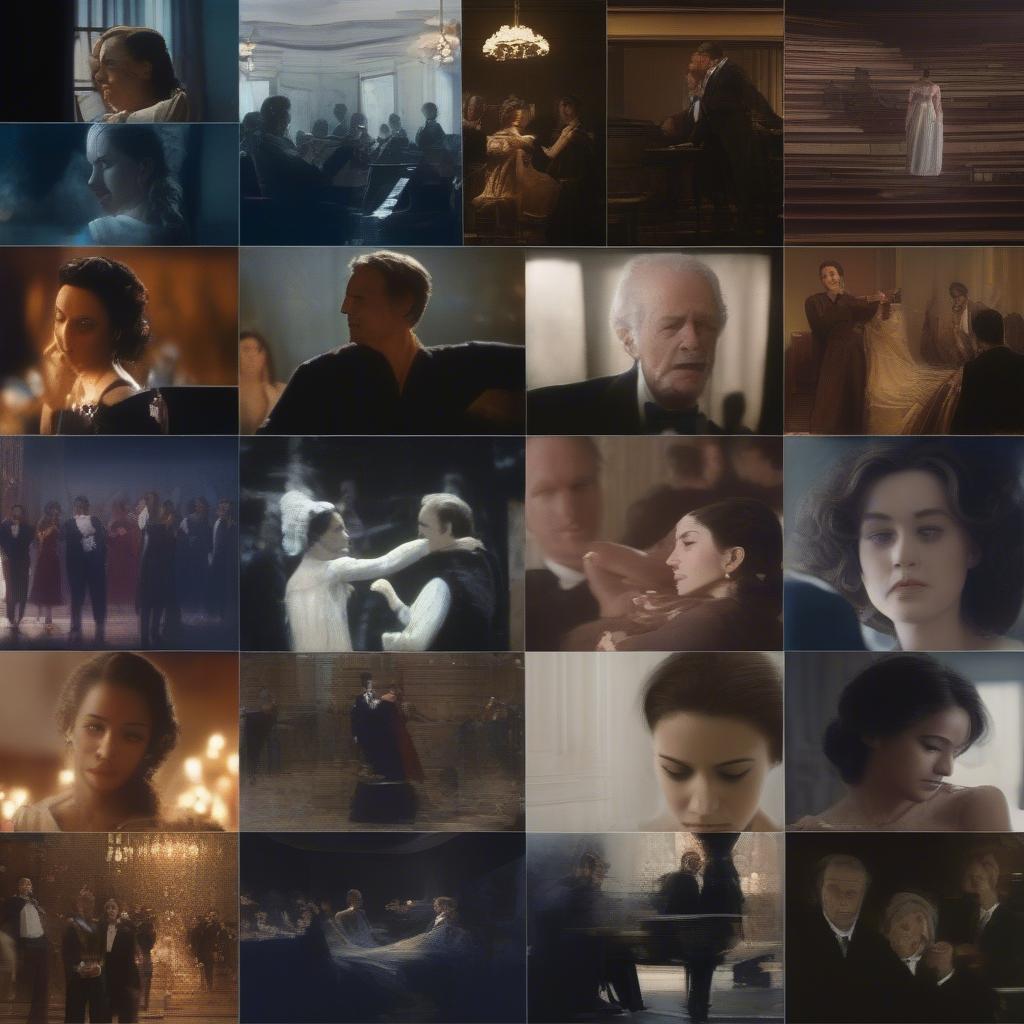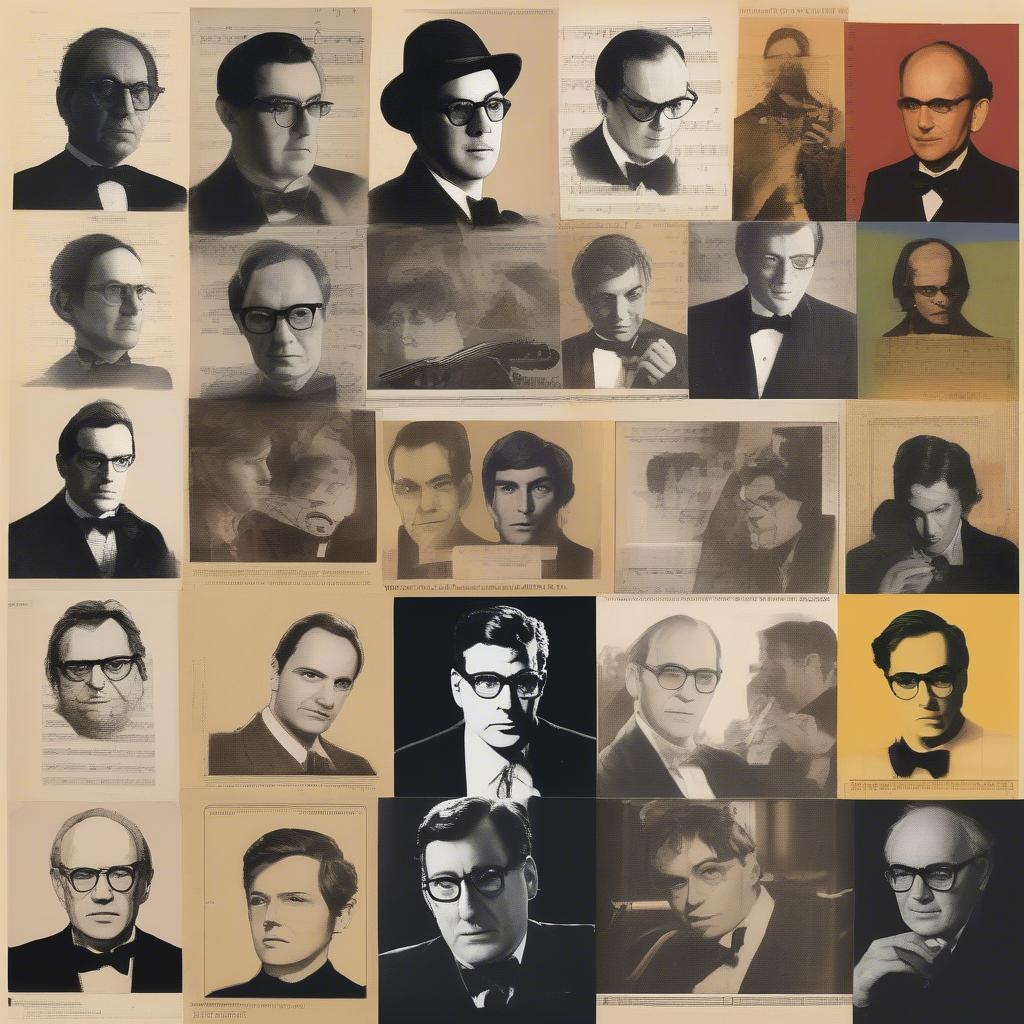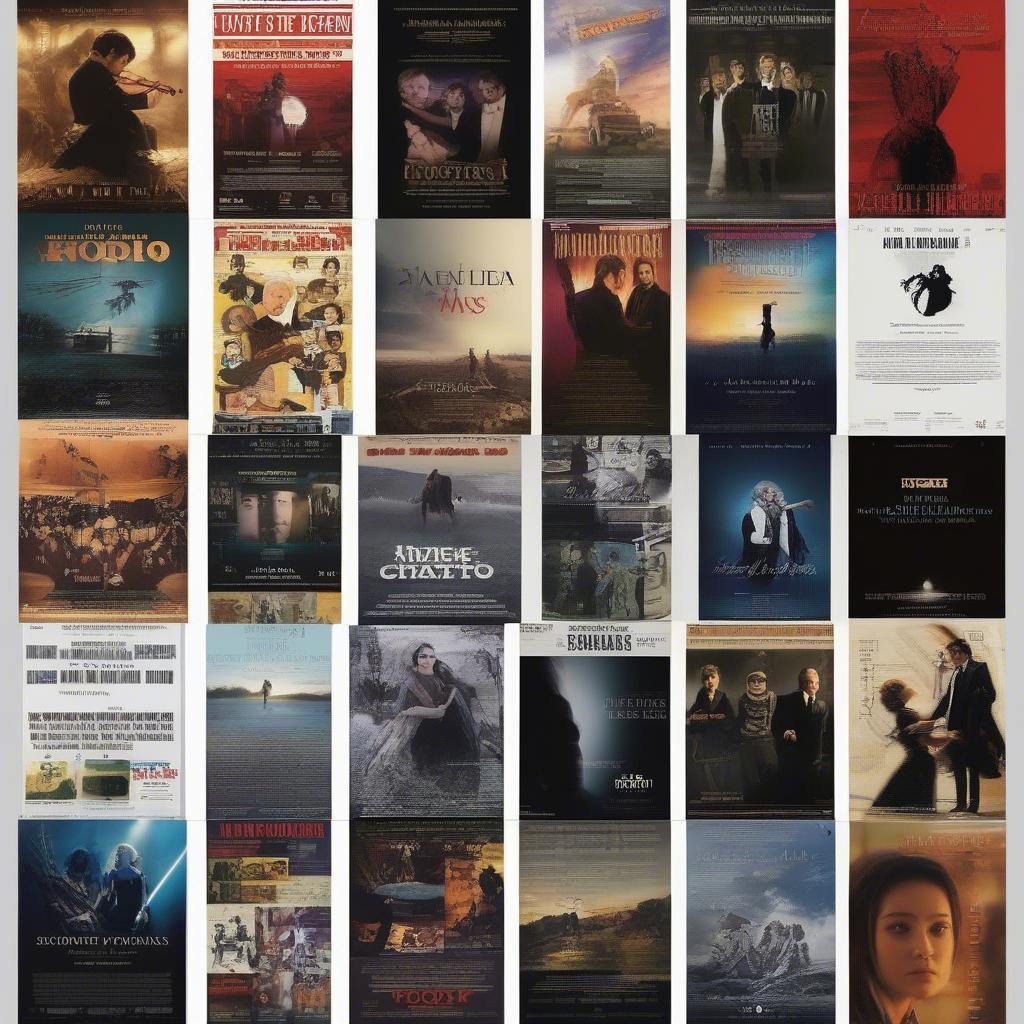Classical music has graced the silver screen for decades, adding depth, emotion, and unforgettable moments to countless films. From dramatic scores to subtle background music, Top Classical Songs In Movies have the power to elevate a scene, create suspense, or evoke a specific mood. This article explores some of the most iconic and impactful uses of classical music in cinema, showcasing how these masterpieces enhance storytelling and create lasting impressions.
 Classical Music Enhancing Movie Scenes
Classical Music Enhancing Movie Scenes
The Power of Classical Music in Film
Classical music offers filmmakers a vast library of emotionally charged compositions, each carrying its own unique history and meaning. Using a well-known piece can instantly connect with the audience, drawing on pre-existing associations and adding layers of meaning to the narrative. For example, the dramatic intensity of Ride of the Valkyries, as famously used in Apocalypse Now, creates an unforgettable scene of chaotic power. Conversely, the delicate beauty of Debussy’s Clair de Lune can evoke a sense of romance and nostalgia. These top classical songs in movies become more than just background music; they are integral to the story itself. You might enjoy top popular hindi songs as well.
How Classical Music Shapes Narrative
Classical music can foreshadow events, reveal character traits, and even comment on the action on screen. A sudden shift in tempo or tone can signal a turning point in the plot, while a recurring motif can represent a specific character or theme. The use of diegetic music, where the music is part of the scene itself (like a character playing the piano), can create a sense of intimacy and realism. Non-diegetic music, on the other hand, exists outside the world of the film and can be used to manipulate the audience’s emotions directly.
Iconic Examples of Classical Music in Movies
From Stanley Kubrick’s use of Strauss in 2001: A Space Odyssey to the haunting strains of Barber’s Adagio for Strings in Platoon, classical music has provided some of the most memorable moments in cinematic history. Let’s explore some specific examples:
- 2001: A Space Odyssey: Strauss’s Also Sprach Zarathustra accompanies the iconic opening sequence, creating a sense of awe and wonder as humanity reaches for the stars.
- A Clockwork Orange: Beethoven’s Ninth Symphony becomes intertwined with the protagonist’s violent tendencies, raising complex questions about art, morality, and free will. Are you a fan of 36 top indian song?
- Platoon: Barber’s Adagio for Strings underscores the horrors of war, evoking a profound sense of loss and grief.
- The Shining: Penderecki’s unsettling string compositions amplify the film’s psychological horror, creating an atmosphere of dread and suspense.
- Amadeus: Mozart’s genius is brought to life through his own compositions, showcasing the power and beauty of his music. For Bollywood lovers, check out 2014 top 100 songs bollywood.
 Famous Movie Composers Who Utilize Classical Music
Famous Movie Composers Who Utilize Classical Music
What Makes These Pieces So Effective?
The effectiveness of these top classical songs in movies stems from their ability to resonate with the audience on an emotional level. The music amplifies the existing emotions in the scene, creating a more powerful and immersive experience. Often, the contrast between the music and the visuals creates a particularly striking effect, such as the juxtaposition of a serene classical piece with a scene of violence.
The Future of Classical Music in Film
While contemporary film scores often rely on synthesized sounds and electronic music, classical music continues to hold a special place in cinema. Its timeless quality and emotional depth ensure that it will remain a valuable tool for filmmakers seeking to enhance their storytelling. Perhaps you might enjoy arijit singh top 10 best songs.
“Classical music’s inherent emotional power allows filmmakers to connect with audiences on a visceral level, bypassing the need for dialogue and creating a truly universal language,” says renowned film composer, Dr. Amelia Hartmann. “It’s a language that transcends cultural boundaries and speaks directly to the human soul.”
 Modern Movies Still Using Classical Music Effectively
Modern Movies Still Using Classical Music Effectively
Conclusion
Top classical songs in movies have played a crucial role in shaping the cinematic landscape, adding depth and emotional resonance to countless films. From enhancing narrative to evoking specific moods, classical music offers filmmakers a powerful tool for storytelling. As we continue to explore the possibilities of sound and image, classical music’s timeless beauty and emotional depth will undoubtedly continue to inspire and move audiences for generations to come. What are some of your favorite uses of top classical songs in movies? Fans of Armaan Malik can check out armaan malik top 10 songs.
FAQ
- Why is classical music often used in movies?
- What are some of the most famous examples of classical music in film?
- How does classical music contribute to the emotional impact of a movie scene?
- What is the difference between diegetic and non-diegetic music in film?
- Are there any modern movies that still use classical music effectively?
Need help? Contact us at Email: contact@truykich2.net, Address: Constellation Blvd, Suite 100, Los Angeles, CA 90067, USA. We have a 24/7 customer support team.
